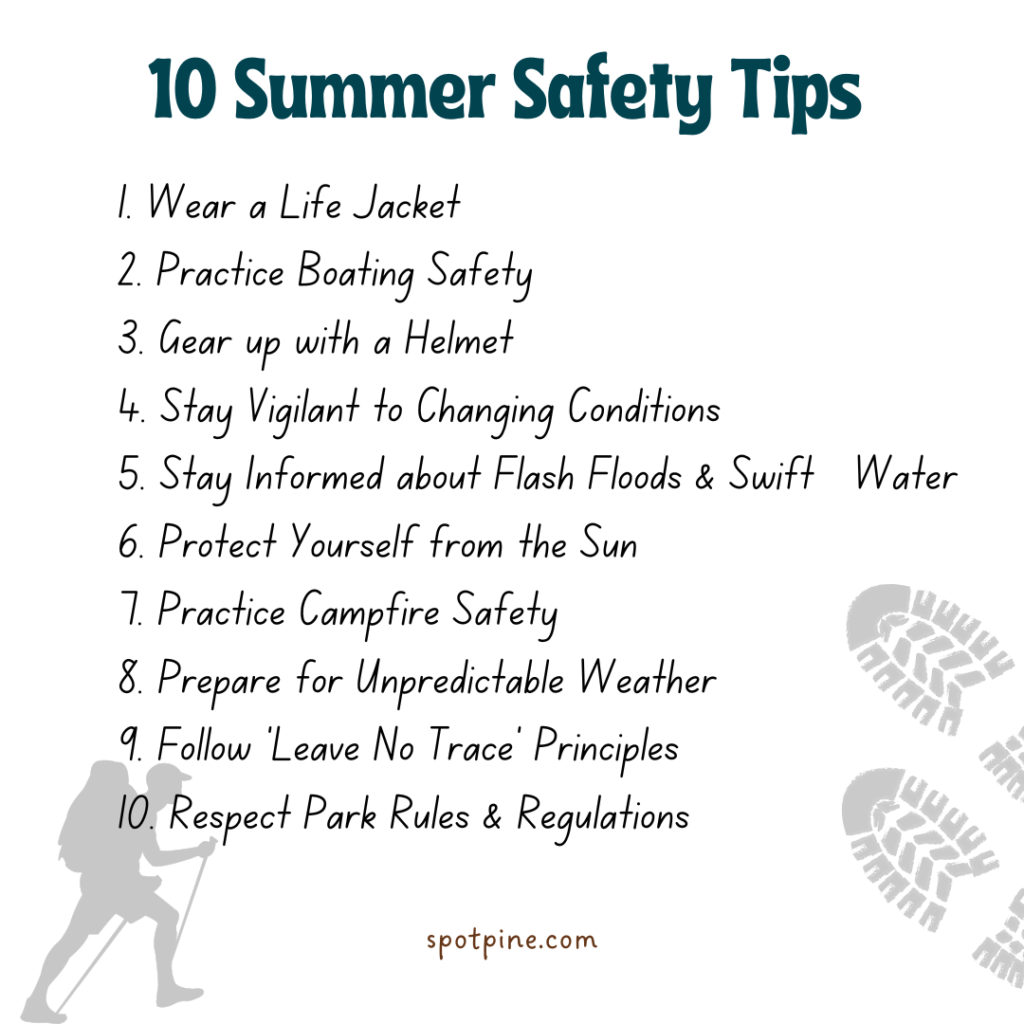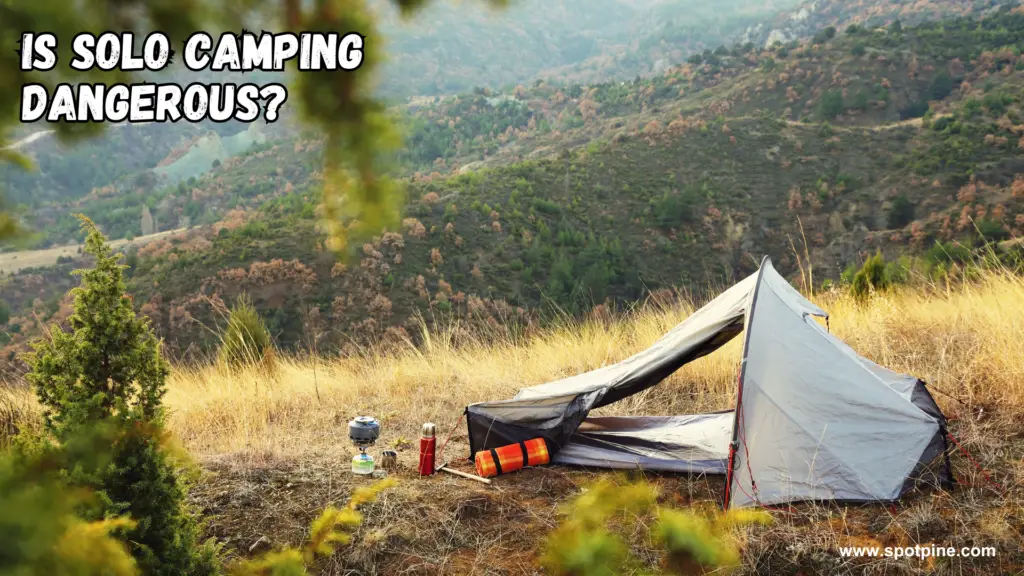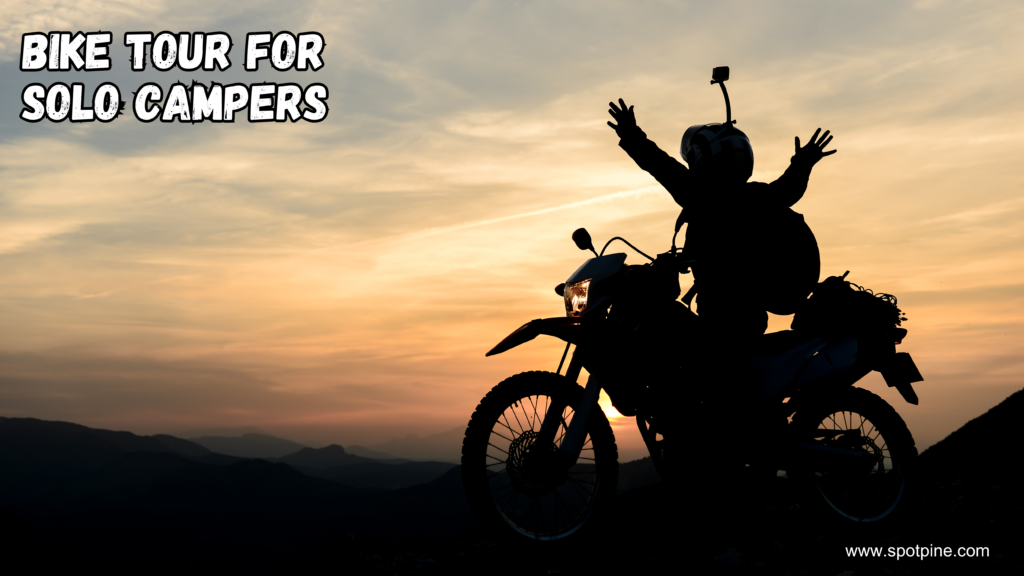Solo camping can be risky, but taking proper precautions can help minimize the dangers. Trust your instincts and have a backup plan if something doesn’t feel right.
Women camping alone face additional risks and should take extra precautions for their safety. Common hazards include extreme weather conditions and the possibility of getting lost. Familiarize yourself with the area and start with camping in familiar locations before venturing into more challenging environments.
Gradually build your experience and knowledge to ensure a safe solo camping trip.
Understanding The Risks
Solo camping can be dangerous due to natural hazards like extreme weather conditions and wildlife encounters, posing risks for injuries and discomfort. Women camping alone face increased safety concerns, including the risk of harassment and assault. Extra precautions are necessary to ensure their safety while camping solo. Common weather hazards during camping include flooding, lightning, and extreme temperatures, leading to potential injuries and gear damage. It’s important to be aware of these risks and take necessary safety measures to mitigate them when planning a solo camping trip.
Dispelling Fears
Solo camping may seem daunting, but with the right precautions, it can be safe and enjoyable. Trust your instincts and be prepared for potential risks such as weather hazards or safety concerns. With proper planning and awareness, camping alone can be a rewarding experience.
The Psychological Aspect
One of the most important rules for staying safe while camping alone is trusting your instincts. If something feels wrong, it’s best to seek an alternative plan. Don’t let anyone tell you otherwise. Being alone in a tent in the middle of nowhere by yourself can be scary. The good news is that you can become comfortable out in the woods alone if it’s something you want to do. Unfortunately, women camping alone face increased risks of harassment, assault, and other safety concerns. While this does not preclude them from camping solo, extra precautions must be taken to ensure their own safety when doing so.
Common weather hazards while camping include flooding, lightning, and snow. Campers can get caught out in these conditions, leading to injuries, being stranded, gear damage, and death. Extreme heat or extreme cold are also some of the biggest risks while camping.
Safety Guidelines
Solo camping can be risky, but following safety guidelines is crucial. Trust your instincts and have an alternative plan in case of emergencies. Women camping alone should take extra precautions due to increased safety risks. Stay alert and prepared for potential hazards like extreme weather conditions.
| One essential rule for solo camping safety: trust your instincts. If something feels off, don’t hesitate to change plans. For instance, if you lack signal in a forest, feel free to return to a safer area. |

Tips For Solo Camping
Is solo camping dangerous? While there are risks associated with camping alone, with the right precautions, it can be a safe and rewarding experience. When it comes to solo camping, it’s important to choose familiar areas and gradually transition to more remote locations. Trusting your instincts and having a backup plan in case of unease is crucial. Additionally, being aware of potential dangers such as wildlife encounters and extreme weather is essential. Moreover, women camping alone face unique safety concerns and may need to take extra precautions to ensure their security. However, with proper preparation and a vigilant mindset, solo camping can be a fulfilling adventure.
Case Studies
When it comes to solo camping, it’s essential to trust your instincts. Always seek an alternative plan if something feels wrong, and don’t hesitate to return to a town if necessary. Camping alone can be scary, especially for women who face increased risks of harassment and assault. Weather and environmental hazards such as flooding, lightning, and extreme temperatures also pose danger. However, successful solo camping stories demonstrate that with the right precautions and mindset, camping alone can be an enriching and fulfilling experience.
FAQs:
How Safe Is It To Camp Alone?
Camping alone can be safe but trust your instincts. If something feels wrong, change your plan. Be cautious, especially if you’re a woman, and take extra safety measures. Stick to familiar areas at first and gradually progress to more challenging camping situations.
Is Solo Wild Camping Scary?
Solo wild camping can be scary, but it’s okay to feel scared. Trust your instincts, if something feels wrong, seek an alternative plan. Women camping alone face increased risks, so extra precautions must be taken. Common risks include weather hazards and getting lost.
Start with familiar areas and gradually progress to more difficult situations.
What Risks The Woman May Be Facing Camping Alone?
Women camping alone face increased risks of harassment, assault, and safety concerns. Although they can still camp solo, extra precautions are necessary to ensure their safety. Additionally, weather hazards such as flooding, lightning, extreme heat, and cold pose significant risks for all campers.
How Risky Is Camping?
Camping alone can pose risks, such as encountering extreme weather, getting stranded, and facing safety concerns. It’s important to trust your instincts and be prepared for unexpected situations. Gradually ease into solo camping in familiar areas and always prioritize your safety.
Conclusion
When it comes to solo camping, there are inherent risks that one must consider. However, with proper preparation, risk management, and trusting your instincts, camping alone can be a rewarding and safe experience. It is important to be aware of potential dangers such as wildlife encounters, extreme weather conditions, and personal safety concerns, especially for women camping alone.
By taking extra precautions and gradually acclimating yourself to solo camping, you can enjoy the solitude and beauty of nature while staying safe. Remember, if something feels wrong, trust your instincts and seek an alternative plan.



